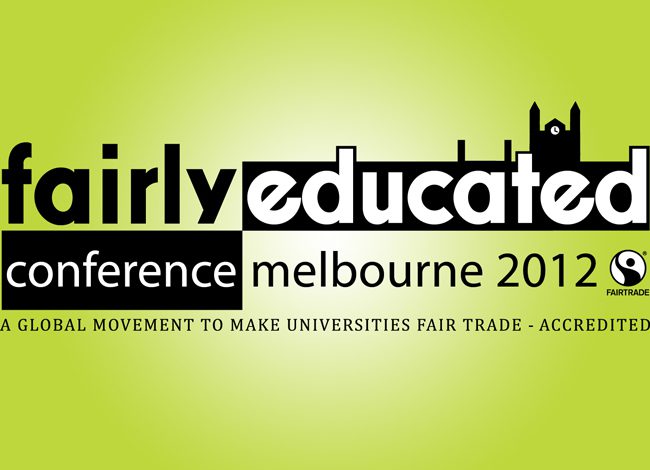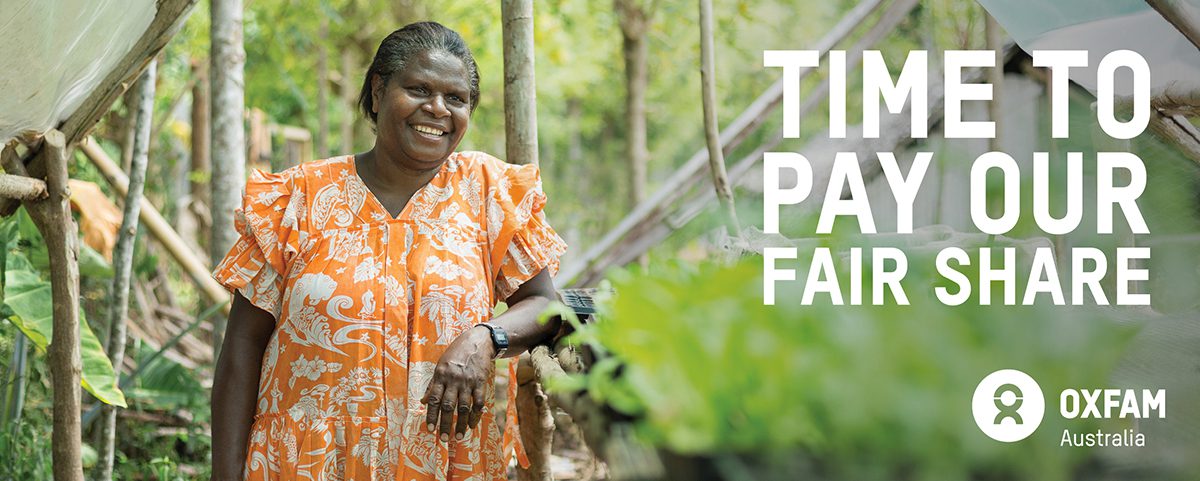by Oxfam intern Jarrod Strauch
It’s a simple question with huge implications. Universities are recognised as the places where society evolves: they are the places where so many minds are first exposed to ideas of social consciousness and ethical consumerism.
In 2010, there were over 1.1 million students enrolled in Australian higher education facilities – almost exactly five percent of the entire population of Australia. Imagine the impact that could be made by universities actively choosing to promote Fair Trade to students. By encouraging universities to provide Fair Trade products and to educate staff and students about the benefits of Fair Trade, we could make a huge difference in the lives of small-scale farmers and workers, as well as help protect our environment.
Currently, the Fairtrade International system of Fair Trade certification benefits 1.2 million workers in 60 developing countries around the world. Fairtrade provides farmers and producers with a fair price which covers the cost of sustainable production, as well as the Fairtrade Premium, a sum of money paid on top of the Fairtrade price for investment in social, environmental, or economic projects.
However, campaigning for Fair Trade is easier said than done. The issues that Fair Trade seeks to address, like problems with supply chains, slave labour and consumer power, have to be explained to all the audiences involved in tertiary education – not just students, but lecturers, university administration, and other staff members. Information on Fair Trade suppliers and contractual obligations has to be discovered and disseminated. It can be a long and difficult process.
Fairly Educated is a not-for-profit initiative that aims to make it easier for Fair Trade movements to make an impact on the way their university does business. Born in late 2010, Fairly Educated seeks to build a network between university Fair Trade movements to aid information and resource sharing and offer encouragement in campaigning, including the promotion of group events and progress on their Facebook page. Fairly Educated also works to re-enforce the work of existing Non-Government Organisations (NGOs) like Oxfam and Vision Generation by providing them with materials specific to getting universities to provide Fair Trade products.
If you want to help move your university to a Fair Trade future, Fairly Educated can help you. From 27-29 July, Fairly Educated will be holding the second annual Fairly Educated Conference in Melbourne. The conference aims to bring together university students from Australia and New Zealand to increase their knowledge of Fair Trade, equip them with campaigning and leadership skills, and provide them with an invaluable opportunity to network with like-minded students, staff, business and organisations.
The conference with be hosted by the Melbourne Universities Consortium, consisting of representatives from Deakin, La Trobe, Melbourne, Monash and RMIT. More information can be found on their website.




